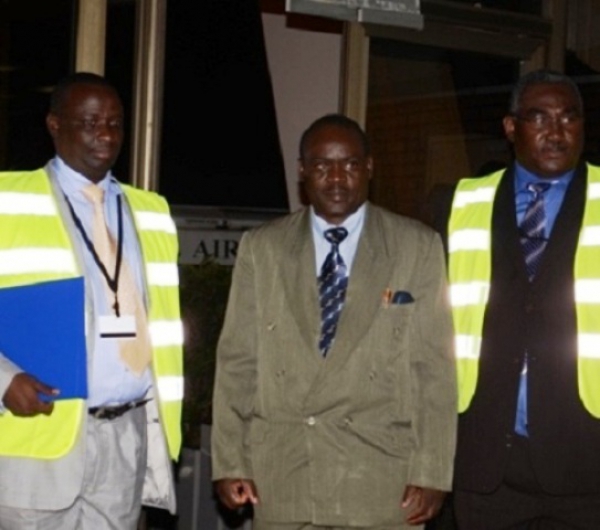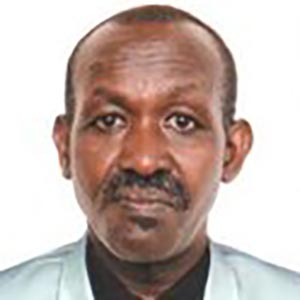Several genocide suspects have been extradited to Rwanda by third countries or the International Criminal Tribunal for Rwanda (ICTR), which closed its doors at the end of 2015. Most of them accuse the Rwandan government of denying them adequate means for their defence. The Justice Ministry, which oversees legal aid, denies the accusation.
The first accused person to be sent to Rwanda by the ICTR was Pentecostal pastor Jean Uwinkindi, who was transferred in April 2012. The ICTR judges approved his transfer after receiving assurances from Rwanda that the accused would get a fair trial there. When he arrived in Kigali from the ICTR detention centre in Arusha, Tanzania, Uwinkindi was assigned two Rwandan defence lawyers, Gatera Gashabana and Jean-Baptiste Niyibizi. The two lawyers were first paid by the hour and then on the basis of a monthly contract with the Ministry of Justice. The system seemed to work well, up to the day when the ministry brought in a flat amount of 15 million Rwandan francs (about 19,000 US dollars) for any case referred to Rwanda by the ICTR or a third country in which the accused person is considered indigent. The two lawyers refused to sign the new contract. They then had several discussions with the ministry, but this did not change the stance of Gashabana and Niyibizi, who say it was impossible for them to carry out defence investigations. “The Ministry of Justice is refusing without any reason to grant the defence team enough funds to allow it to get in contact with defence witnesses,” wrote the pastor’s lawyers in a September 2013 request to the president of the UN’s Mechanism for International Criminal Tribunals (MICT). They asked the MICT to cancel for this reason the decision referring Uwinkindi to the Rwandan justice system. The MICT rejected the request, saying it hoped the defence and the Ministry of Justice would be able to reach an agreement.
However, since no compromise was reached, Gashabana and Niyibizi walked out in January 2015. The Kigali Bar designated two new lawyers, but Uwinkindi refused even to meet with them. And so, right up to the end of the first-instance trial, these new lawyers did not intervene in court, either to question witnesses or to present closing arguments for the defence. On December 30, 2015, Uwinkindi was sentenced to life in prison, notably for having ordered the killing of Tutsis taking refuge in his church in Kayenzi, eastern Rwanda, in April 1994. He is now on appeal.
A “derisory” contract
Former militia leader Bernard Munyagishari, the second ICTR genocide suspect to be transferred to Rwanda, has since last March been boycotting his trial to protest what he also says is a violation of his right to legal aid. He took the decision after his lawyers John Hakizimana and Jean Baptiste Niyibizi resigned saying their contract was “derisory”.
According to the lawyers, the flat sum of 15 million Rwandan francs amounts, for a case lasting five years and involving two defence lawyers, to some 125,000 Rwandan francs per lawyer per month (i.e. less than 200 US dollars).
The third ICTR accused person transferred to Rwanda is former mayor Ladislas Ntaganzwa, who arrived in Kigali in November 2015. Will he follow in the footsteps of Uwinkindi and Munyagishari?
In relation to persons extradited by third countries, it was the case of Léon Mugesera, who was transferred from Canada in January 2012, that has been most talked about. In the first weeks after he arrived in Rwanda, his family paid the fees of his lawyer Donat Mutunzi. But then payments got behind and the Rwandan lawyer was forced to resign. Mugesera, a renowned linguist, then sought to exercise his right to legal aid but refused, according to the Justice Ministry, to follow the procedures and fill in the necessary forms. Mugesera said he had already signed an affidavit in Canada proving his indigence, and that the document had been included in the case file sent to Rwanda. The accused and the ministry never managed to reach an agreement. As a consequence, the first-instance trial ended without any defence witnesses being heard or any closing arguments in court for the defence. On April 15 this year the famous academic was sentenced to life in prison for public incitement to genocide in a November 22, 1992 speech in Kabaya, northern Rwanda, delivered in Kinyarwanda.
A desire to “harmonize”
In the case of Charles Bandora, the first genocide suspect extradited to Rwanda by a European country, the issue of legal aid seems, on the other hand, not to have come up. This former businessman, transferred from Norway in March 2013, was sentenced to 30 years in jail in May this year for genocide and crimes against humanity and is currently on appeal. His lawyers were paid through legal aid and have never complained.
In its October 22, 2015 decision on Uwinkindi’s request, the MICT points out that more than 60 qualified lawyers in Rwanda, are willing to work under the flat-rate payment system. The decision adds that Uwinkindi, as an indigent accused person, “did not have the right to choose his lawyer” and that “the replacement of initially appointed lawyers does not constitute an obstacle to the fairness of the trial”. “Legal aid is more an issue of principle than of the amount,” says Mackline Ingabire, international justice and judicial cooperation director at the Ministry of Justice. She explains that the flat-rate payment system was introduced in order to harmonize and above all to “encourage the parties to work more quickly”.







